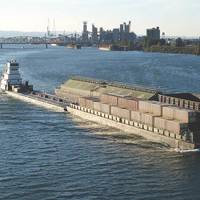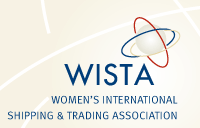Subchapter M: Post Publication Highlights

An extra T in TSMS, nowhere left to hide from systems documentation, and an emphasis on continuous improvement. Back in January of this year, the United States Coast Guard (USCG) predicted Subchapter M would be released in spring 2016. I put my money on June 20, that being the very last day of spring, and on June 20 the long-awaited regulation was finally published. Subchapter M doesn’t come with much we weren’t expecting, which is a good thing. Surprises in this industry are not met with enthusiasm. The USCG should be complimented in that regard.
MN100: Compliance Maritime

Compliance Maritime was founded by Captain Katharine Sweeney in 2010 and has since provided over 400 International Safety Management (ISM) audits and more than 300 vessel security audits. Compliance Maritime is a certified Woman Owned Small Business (WOSB). Clients consist of several key players in the industry, however each and every audit is confidential, and treated as such. Compliance Maritime auditors are certified, insured and current USCG licensed Master Mariners with 150 years of combined experience on a large variety of vessel types.
The Master’s Authority: a Vital SMS Caveat

As safety management systems (SMS) on board vessels evolve, the vessel’s master still holds ultimate authority. Subchapter M is finally underway. A starring role in this new CFR is a safety management system onboard all vessels. While this system dictates how the vessel is to be operated and under what parameters, a key principle of any SMS is that the Master has the authority and the responsibility to override the SMS when safety of the crew, the vessel, or the environment is at stake.
The (Updated) Responsible Carrier Program

Last summer, the United States Coast Guard (USCG) announced its intent to accept the American Waterway Operators (AWO) Responsible Carrier Program (RCP) as an acceptable Towing Safety Management System (TSMS) under pending Subchapter M regulations. The acceptance did not come without some major changes to the RCP, changes that were needed to ensure the RCP would meet USCG requirements and become a viable option for operators once new Subchapter M regulations take effect. When that happens is anyone’s guess.
Subchapter M: The Designated Person Ashore and You

As the workboat industry marches toward Subchapter M, and ever closer to the International Safety Management (ISM) Code, the appointment of a Designated Person Ashore (DPA) becomes more important, the position’s job functions become more defined, and the selection of the right individual becomes more critical. The DPA can be a very important “pressure relief valve” that keeps emerging ethical and safety related concerns from exploding into litigation. The DPA allows anyone working on board a vessel to report perceived unethical behavior or unsafe conditions (including the safety of the crew…
U.S. Ship Owners in Quandry with MLC2006

The failure of the United States to ratify an international treaty pertaining to maritime issues is, unfortunately, nothing new. But the Senate’s failure to ratify the Maritime Labor Convention of 2006 (MLC), arising out of the 94th session of the International Labor Conference held at Geneva that year, will not give American operators in foreign trade an excuse for failing to comply. Complications could certainly arise – translation: expensive delays – when a government official in a foreign port demands a certificate or other proof of compliance.
New Year, New Vessel

Start the year off right with the newest addition to your fleet. Vessels come with lots of manuals and instructions as well as increasing amount of high-tech equipment. That said and even if it just involves a new digital camera or Blu-Ray Player, reading manuals is never exciting. Similarly, reviewing equipment documentation on a vessel is downright daunting, especially when you consider all of the other work it takes to get a vessel into service. That said; it is critical that the crew understand new equipment and are able to operate it.
An ISO Standards New Year’s Resolution:

As a maritime compliance auditor in the field, I’m often called upon to explain the ISO’s (International Standards Organization) approach to continual improvement which says a company shall establish, implement and maintain documented objectives and targets at each relevant function and level within the organization. This is only a requirement of the ISO’s “E” or environmental standard. To get to the “E” or ISO 14001 certification you must first list all the aspects of your business and how each impacts the environment.
WISTA at Seattle Maritime Academy: Sept. 23

Women’s Maritime Shipping Group Meets at Seattle Maritime Academy: Sept. 23; WISTA USA Pacific Northwest Visits Training Vessel E.L. Bartlett. The Women’s International Shipping & Trading Association (WISTA) USA Pacific Northwest Chapter is gathering aboard Seattle Maritime Academy’s Training Vessel, E.L. Bartlett, on Sept. 23 at 3:00 p.m. Following a presentation on the academy’s programs and graduate placement, the WISTA USA Pacific Northwest Chapter will convene its quarterly business meeting. All are welcome.
A Practical Discussion Regarding Compliance
Maritime businesses are increasingly becoming the subject and target of federal criminal investigations. This is due, in part, to the increased emphasis on the enforcement of the criminal provisions of labor, customs and environmental regulatory provisions. A federal investigation of a business or corporation typically begins with federal agents serving a grand jury subpoena requiring the business to produce corporate records and documents. The subpoena requires that the business undertake a diligent and thorough search for the documents called for by the subpoena. Typically, the subpoena will also require that the business present a…





